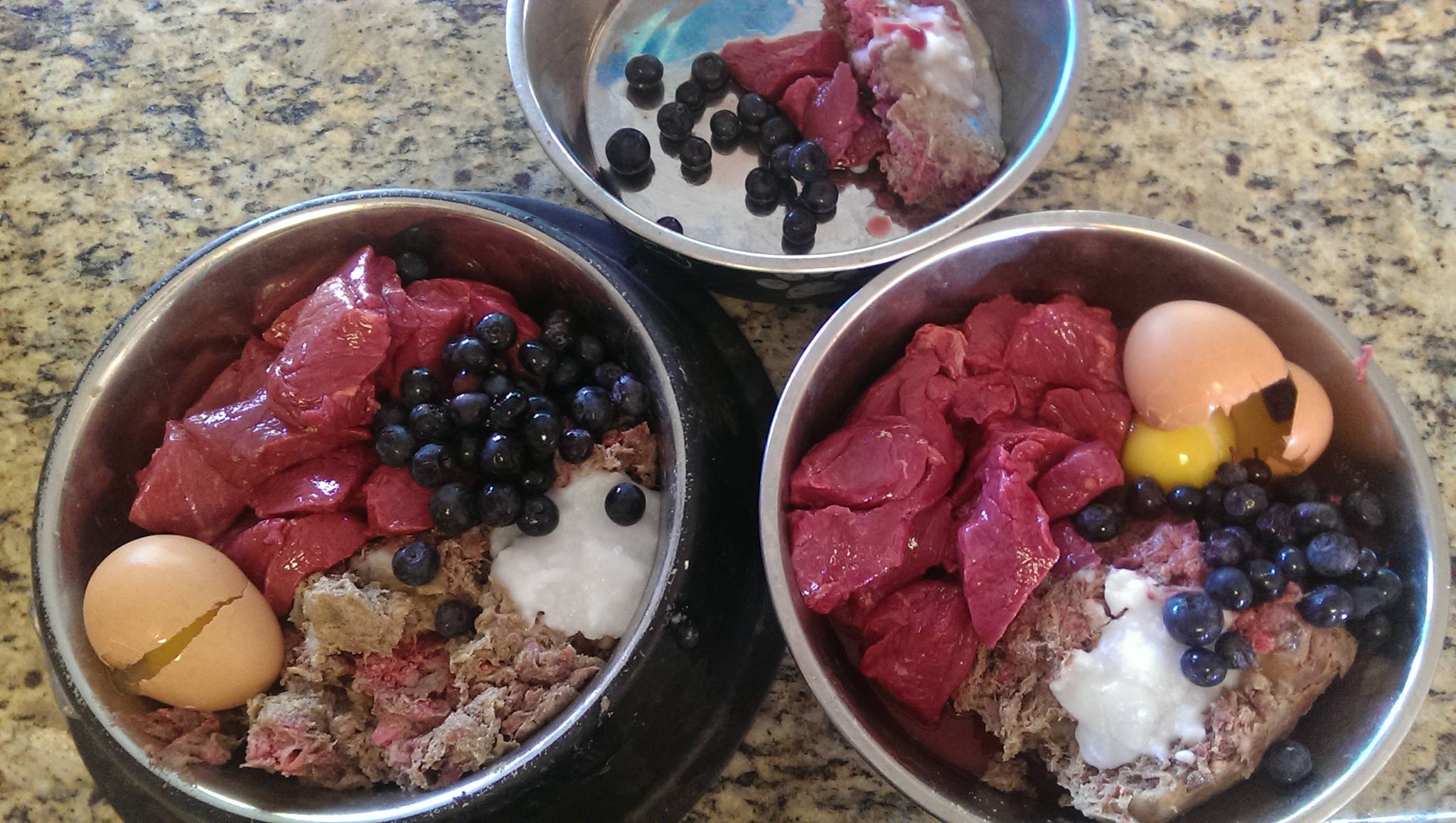FOOD IS EVERYTHING!
Is Natural Diet Safe for My Pet?
Commercial pet food is a massive, and ever-expanding industry. Just because these pet foods are designed in laboratories by people with academic credentials, and because they contain a long list of nutrients, they are not necessarily superior to anything an animal might otherwise consume. Pet food manufacturers and their ‘sponsored’ veterinarians have done a good job of convincing people that table scraps, raw food, and natural supplements that generations have raised their pets on, are somehow no longer good enough or safe.
Sure, commercial pet foods sustain life. After all, millions of pets are being raised on food out of cans, bags, and boxes. But the question is, do they promote well-being and health? I would say that if they did, our animal friends would enjoy long lives free of arthritis, hip dysplasia, eye problems, ear problems, fleas and other parasites, gum disease, respiratory issues, lick granulomas, thyroid imbalances, skin and coat problems, anxiety and other personality disorders, diabetes, cancer, and other illnesses.
Up until 50 years ago, most Americans fed their pets raw food and table scraps. With the changing diet, life expectancy of the animals has also changed. Some breeds of dogs are living only half as long as they were just a few decades ago. Of course, much more than just the diet has changed in last 50 years. Environmental pollution, toxic chemicals, small living spaces, increased noise levels, and stress take their toll on animals as well as humans. But just as majority of the health concerns among humans are directly linked to their diet, the same is true for their animal companions.
One of the most extensive experiments in this field was conducted by Dr.Francis M. Pottenger at his clinic in Monrovia, California. He conducted a 10-year study on 900 cats. In one of his experiments, cats were divided into two groups and fed an identical diet except meat was cooked for one group and the other group was served raw meat. The group fed raw meat was healthy, alert, calm, well-tempered, physically active and coordinated, and were free of fleas and infections. They also reproduced easily and had healthy litters. The group that was served cooked meat suffered from dental and vision problems, skin lesions, allergies, intestinal parasites, arthritis, fleas and poor coordination. While the raw-food fed cats produced healthy kittens generation after generation, there was no fourth generation of cats fed cooked meat because none of its third generation kittens lived long enough to reproduce.
So why is it better to feed animals an all-natural raw food diet?
Cooking destroys vitamins, minerals, trace elements and amino acids. It changes the molecular structure of the food. Now that it is established that all-natural raw food is best for your pet, what should this food be?
The anatomy of domestic dogs and cats points to a meat-based diet, just like their canine and feline relatives—fox, coyote, wolf, puma, lion, tiger, hyena etc. They have sharp teeth for tearing flesh and gnawing bones, their digestive secretions are highly concentrated and their intestines are short, which makes them well-suited for processing freshly killed meat. Dogs and cats in the wild do eat some plant foods, but they are occasional treats, not staple fare.
Rabbits, gerbils, ferrets, and other small mammals eat a variety of grains, grasses, seeds, fruits and vegetables in the wild. They don’t need a pelleted diet which is usually high in starch, unhealthy, and uninteresting for these little fellas.
Forget it! My Pet Won’t Eat that!
Sure it will! Animals are creatures of habit, just like the rest of us. We all need time to get used to the change.
Introduce new, unfamiliar, raw foods slowly and in small quantities by adding them to what your pet already eats. Don’t leave the food lying around, remove whatever has not been eaten after 20 minutes, and don’t feed between meals. Give them time (and a chance) to build up an appetite and then feed them. If they are hungry, they will eat, and if they skip a meal, they certainly won’t die of starvation. Once they start eating the natural food along with what they are used to, start increasing the quantity of natural food and start decreasing processed food, until it is completely eliminated from their diet. Do the same with any supplements you choose to give your pet.
You will very shortly begin to notice a visible difference in their behavior, personality, sharpness of their eyes, shine of their coat, their mood and general well-being.
Good luck to you and your furry family members!

